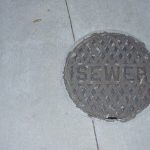When you need hot water, the last thing you want is for it to take ages to heat up. Aside from the inconvenience the longer it takes for your water to come up to the temperature that you need, the more water goes down the drain. When you waste water, you’re literally throwing money away. According to The Department of Energy, 800-1,600 kW hours, each year are used to pump and heat water that goes straight into the drain while waiting for it to reach the required temperature. If you want your hot water to heat up to your tap faster, there are some ways to make that happen.
4 Reasons Why Domestic Water Heats up Slowly
There are four main reasons why the water may be taking too long to heat up in your home; they are:
- The Distance: The length of the distance between the hot water heater and the faucet or shower is a significant determining factor. The further away the water heater and fixtures are from each other, the longer it takes to get there. This added delay can allow the water to cool as it travels through the pipe to the shower or faucet. This is one of the reasons why positioning the water heater is so important.
- A Failing Water Heater: A water heater that’s more than ten years old will typically be less effective at heating the water and more likely to fail. If you’re not sure if your water heater is still efficient contact your local licensed plumber and ask them to evaluate it for you. If you’re having problems, it might be a better idea to simply replace the old water heater with a brand new efficient unit.
- A Low Volume Restrictor: If you have a low volume restrictor fitted on some of your plumbing fixtures such as your shower this can delay the delivery of heated water. Removing the low volume restrictor will make the water flow faster, and the water will be better able to retain its heat.
- Sediment in Your Water Heater: Most of the homes in our nation are supplied with hard water. This water contains dissolved minerals, such as calcium, magnesium and to a lesser extent, iron. This mineral content settles at the bottom of the hot water tank making the time between refills longer. If you contact a professional plumber, they can flush the sediment out of the water heater and carry out essential maintenance on components that have been affected. This work will make the water heater run more efficiently, and it will extend the useful lifespan of the equipment.
How Can You Get Your Hot Water Faster?
We’ve already mentioned some easy ways to solve this problem. But, this may not be enough for your home, and you may need to look at other options. There are two methods that can deliver hot water faster than a traditional water heater; they are a hot water recirculation system and a tankless water heater. Let’s take a look at these two domestic water heating methods in more detail.
The Hot Water Recirculation System
A hot water recirculation system is designed to move water faster from the hot water heater to the required plumbing fixture. The used water is recirculated back into the water heater, and this keeps the hot water closer to your faucets. This type of water heating system is typically activated by a thermostat or a timer. A hot water recirculation system can be attached to your water heater or mounted near a faucet. If you have a model that’s attached to your water heater it has a pump and time that is activated to keep the hot water in circulation. Installing a hot water recirculation system will significantly reduce the amount of time waiting for hot water and will also significantly reduce the volume of water lost. But, there is a drawback with this system, the system is in continuous use, and this will increase your energy bills.
The Tankless Water Heater
This is a way to provide on demand hot water continuously without the need for a more traditional water heater storage tank that needs to refill itself. This provides all the hot water you need when you want it, and the water heating costs are reduced because the water storage tank isn’t heating water that you’re not going to use. The larger units are whole house tankless water heaters, and they come into a variety of sizes. There are also smaller point of use tankless water heater units for individual faucets, and these can be installed out of sight in a closet or sink cabinet. This is a great option if you need a hot water output at a specific faucet, and you don’t have a water heater with sufficient capacity to meet the needs of the entire home.
The Aging Water Heater
Any water heater reaching ten years old or even older will be far less efficient at heating the water in your home. In a typical home, a water heater will account for up to 25% of your energy usage. That is a huge figure, and if the water heater is inefficient much of that considerable power burden is totally wasted on poor heating performance. When this energy use is combined with the gallons of water wasted while waiting for the water to get hot, you can see that the costs really add up. When you get your water heater serviced, repaired, or replaced with a more efficient unit, you should notice the difference straight away. The water will be heated faster, it will cost less to heat, and you will not waste as much water.
Replacing Your Water Heater isn’t as expensive as you might imagine. Many of the modern units are far more energy efficient than the older models to help you save money. If you contact your
local licensed plumber, they can fit your new water heater for you.
By Giovanni Longo President Flood Brothers Plumbing
Giovanni Longo is a 3rd generation master plumber who has been practicing his craft and trade in the greater Los Angeles area for well over a decade and a half. A plumbing and hydraulics-engineering innovator, Giovanni’s particular world-class expertise focuses on dealing with challenging sewer system designs as well as resolving complex commercial and residential draining issues. As a certified Flood Mitigation expert, he is also well versed in a wide variety of water damage and remediation solution.





